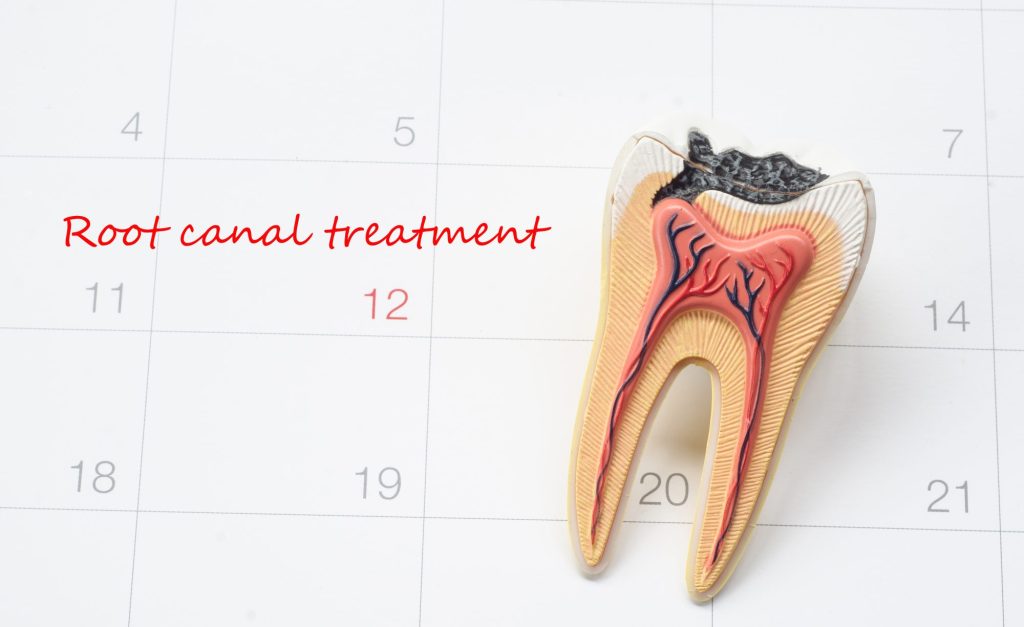While you may do your best to maintain a healthy mouth and smile, sometimes you might require help in the form of a root canal procedure. If so, it will be beneficial to know what it is and how best to prepare. This information can help alleviate anxiety and provide you with the steps to take before and after the procedure in order to make the experience less stressful.
What Exactly is a Root Canal Procedure?
A root canal procedure is best explained by looking first at the tooth’s anatomy. Deep within each tooth lies what is referred to as a pulp chamber. This pulp includes the nerve and blood vessels of that particular tooth. When decay reaches here, or you sustain a chip or crack to the tooth’s surface exposing the area, infection can set in and may cause intense pain as the tooth begins to die.
As a result, your dentist can conduct a procedure to remove the infected pulp and reshape the tooth’s interior. Cleaning and disinfecting the area will come next, followed by insertion of a filling and a sealant. Once completed, you will likely need a dental crown placed over the top of the remaining tooth structure to restore function and protect it from further damage.
How to Prepare for Your Root Canal Procedure
To prepare for your root canal procedure and help speed up the recovery process, consider taking the following steps.
Ask Your Dentist Any Lingering Questions
If you have any remaining questions or concerns prior to the procedure, schedule time to talk with your dental team. Ask about anesthesia options and whether you should consider taking an over-the-counter pain reliever, such as ibuprofen, prior to your appointment. Also, discuss what to expect following the procedure so you will be ready to take care of yourself and facilitate speedier healing. You may need antibiotics or painkillers or need to follow guidelines such as what foods to avoid for a day or two.
Be Sure to Eat a Meal At Least 2 Hours Before the Procedure
During the root canal procedure, you will receive an anesthetic, and the resulting numbness can last for hours afterward. This numbness can affect your ability to eat comfortably. For this reason, be sure to eat a good meal at least two hours beforehand.
Avoid Tobacco and Alcohol Products for 24 Hours Prior to Procedure
Your dentist will inject the affected area with a local anesthetic, and you may experience a negative reaction to this if you have alcohol or tobacco in your system. Nicotine found in tobacco products can also affect blood flow, and this can lead to bleeding issues during and after the procedure. Alcohol products may cause dry mouth and other conditions which can affect your healing time.
Avoid Certain Dietary Supplements
Discuss all dietary supplements you take with your dentist to determine if you need to avoid them prior to the procedure. Examples of ones that can have adverse effects include fish oil, vitamin E, turmeric, ginkgo biloba, ginger, chamomile, ginseng, and valerian root. These supplements are usually blood thinners or can prevent clotting. Some can also interfere with anesthesia.
Determine Ways to Stay Calm Throughout the Procedure
If you feel even the slightest bit anxious about the procedure or your ability to sit still in the dentist’s chair for such a long time (two hours or more), determine ways to help you stay calm. Perhaps you can plan to listen to a podcast or audiobook, or even soothing music. Find ways to distract yourself while still being able to respond to the dental team.
Prepare for After the Procedure
To ensure you have what you need to heal and recover following the procedure, stock up on foods you can eat in the following 24 hours. Suggestions include yogurt, pudding, soft cereals, and smoothies. You should be able to enjoy your regular eating habits after a day but take it easy for a while to make sure you allow full healing to occur.
You may want to have over-the-counter pain relievers (ibuprofen or acetaminophen) on hand should you need them. Also, you will want to avoid drinking through straws, sipping on overly hot beverages, and chewing on hard candy or nuts, as these can all create discomfort and slow the healing process.
Contact South Dayton Smiles to Find out More About Root Canal Procedures
Whenever you have to undergo a dental procedure, it helps to know what to expect and to also work with a dental team you can trust. Our team at South Dayton Smiles will take the time to discuss your dental needs, answer questions, and create a personalized treatment plan in your best interests. Find out more about how a root canal procedure or other treatment option can benefit your oral health by contacting South Dayton Smiles today and scheduling an appointment.

 Meet Dr. Botti
Meet Dr. Botti
 Meet Dr. Scranton
Meet Dr. Scranton
 Our Team
Our Team
 Patient Forms
Patient Forms Online Bill Pay
Online Bill Pay Benefit Program
Benefit Program Your First Visit
Your First Visit